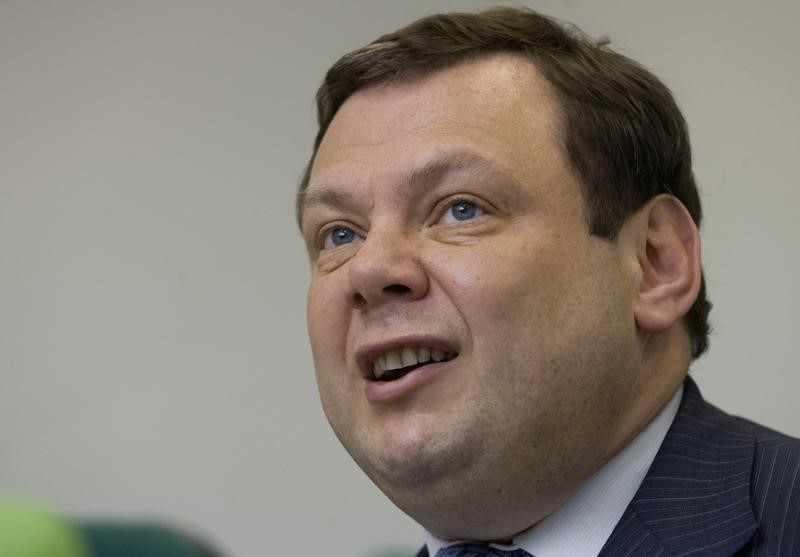By Ron Bousso and Dmitry Zhdannikov
LONDON (Reuters) - Russian billionaire Mikhail Fridman's LetterOne fund has emerged as the frontrunner for the acquisition of German utility E.ON's (DE:EONGn) Norwegian North Sea assets, three industry and banking sources said on Tuesday.
The potential acquisition would signal a renewed push by the Russian oligarch to expand his private equity fund's oil and gas portfolio after being forced to sell his British North Sea assets as a result of U.S. and European sanctions on Moscow.
E.ON is hoping to fetch up to $2 billion from the sale of all its oil and gas assets in Norway, the British North Sea and Algeria as part of a broad restructuring.
The value of the emerging deal was unclear but the recent volatility in crude oil prices could nevertheless mean the assets could go for less, the sources said.
LetterOne is now in advanced talks with E.ON to buy the Norwegian assets after several players placed offers for the assets several weeks ago, the sources said.
An announcement on the deal could come in the coming days, though final details still need to be hammered out, one of the source said.
The Norwegian portfolio comprises a 30 percent stake in the Njord field, a 28.1 percent stake in the Skarv field and a 17.5 percent stake in the Hyme field, according to E.ON's website.
A LetterOne spokesman declined to comment. E.ON was not available for comment.
Bank of America (NYSE:BAC) Merrill Lynch is arranging E.ON's sale process.
LetterOne, whose energy fund is headed by former BP (LONDON:BP) boss John Browne, has recently asked Britain to delay an October deadline to sell its North Sea assets after a first round of offers came in far short of its initial target, several sources told Reuters last month.
In April the British Energy Ministry gave Fridman six months to dispose of LetterOne's North Sea assets it had acquired from German utility RWE (DE:RWEG) or see the their licences revoked as the West tightened sanctions against Moscow over its role in the Ukraine crisis.
E.ON, Germany's largest utility, said last year it would spin off its power plant business, energy trading and oil and gas activities into a separate unit. It has also agreed to sell its businesses in Spain, Portugal and Italy.
